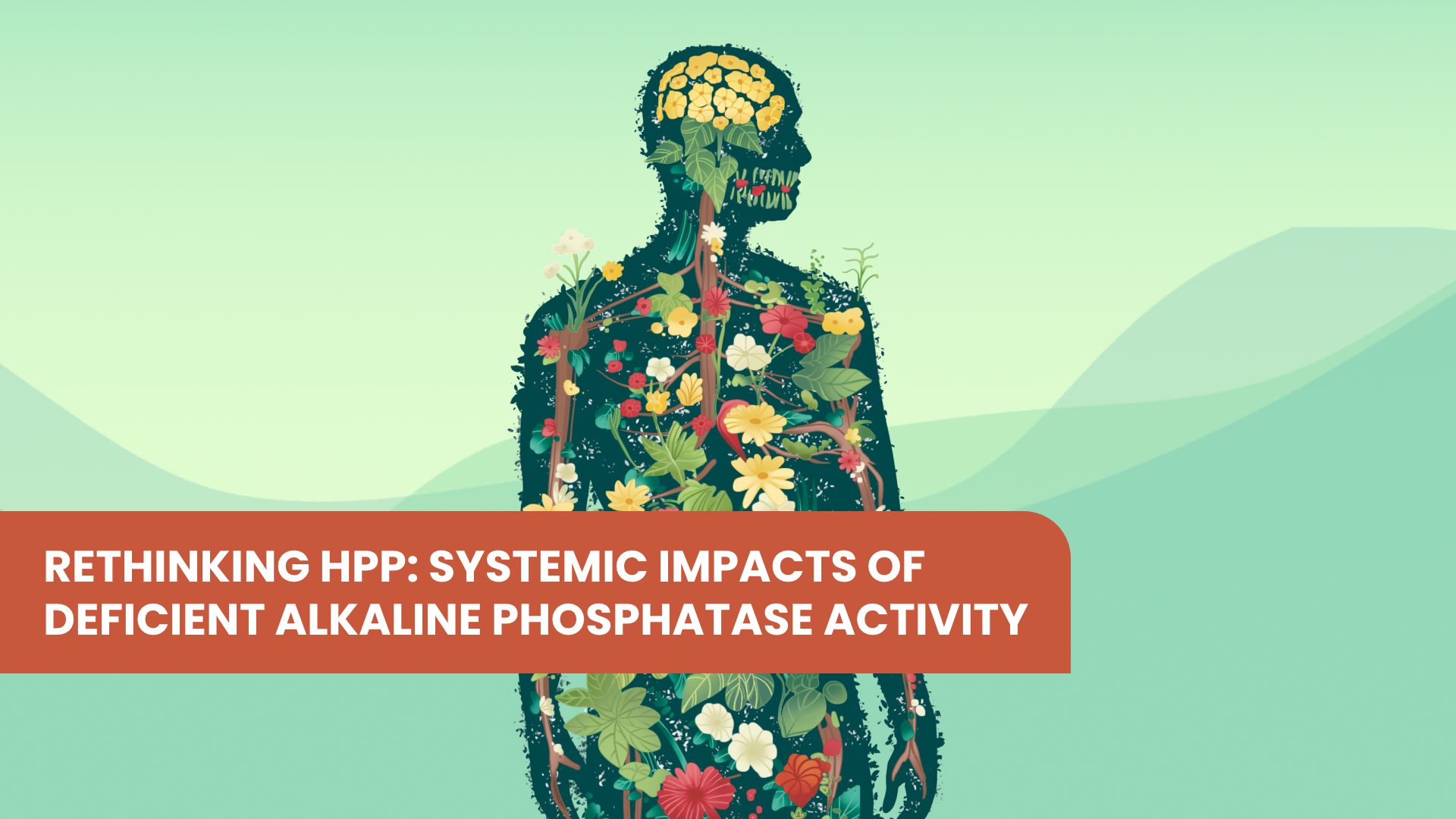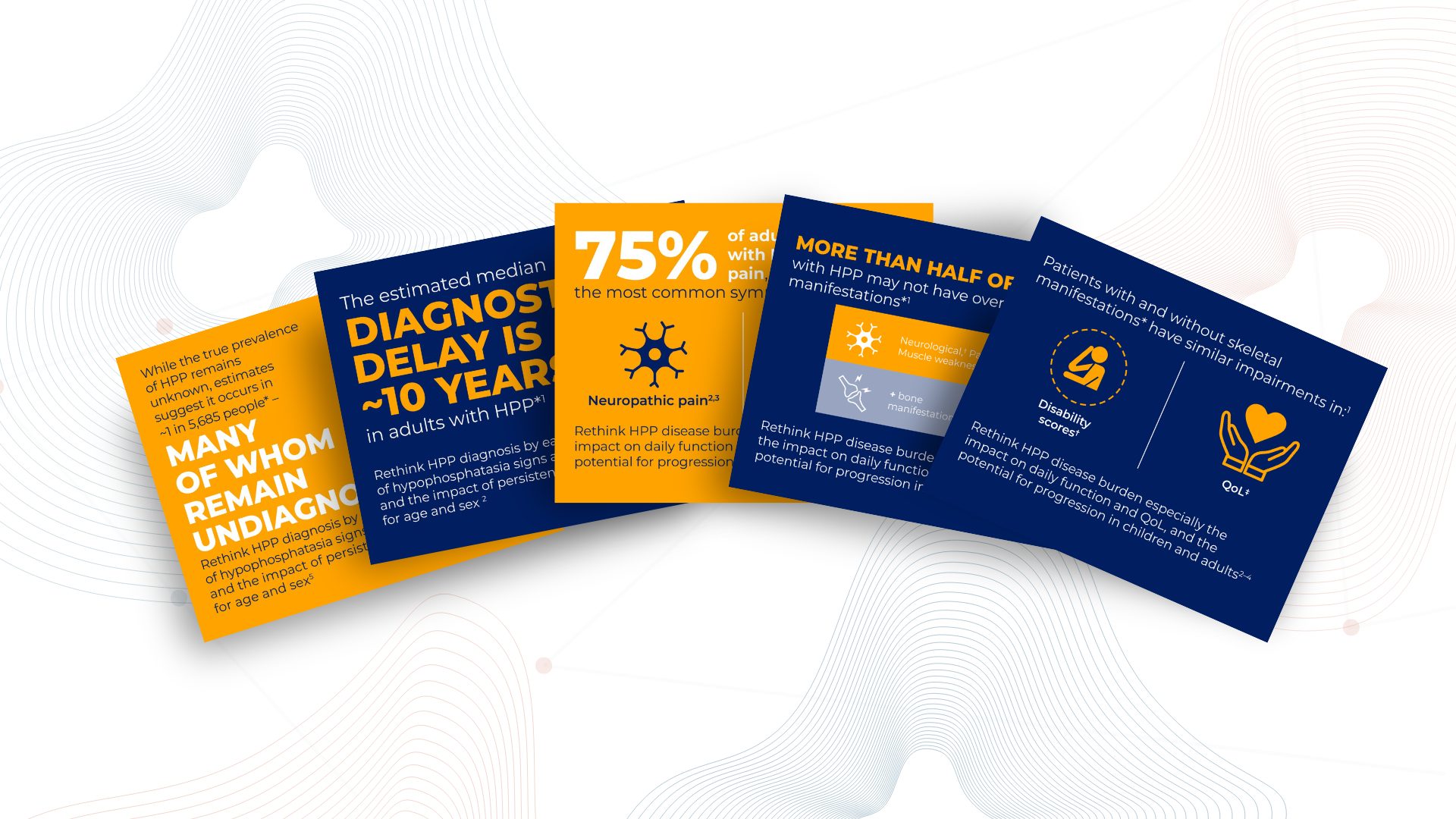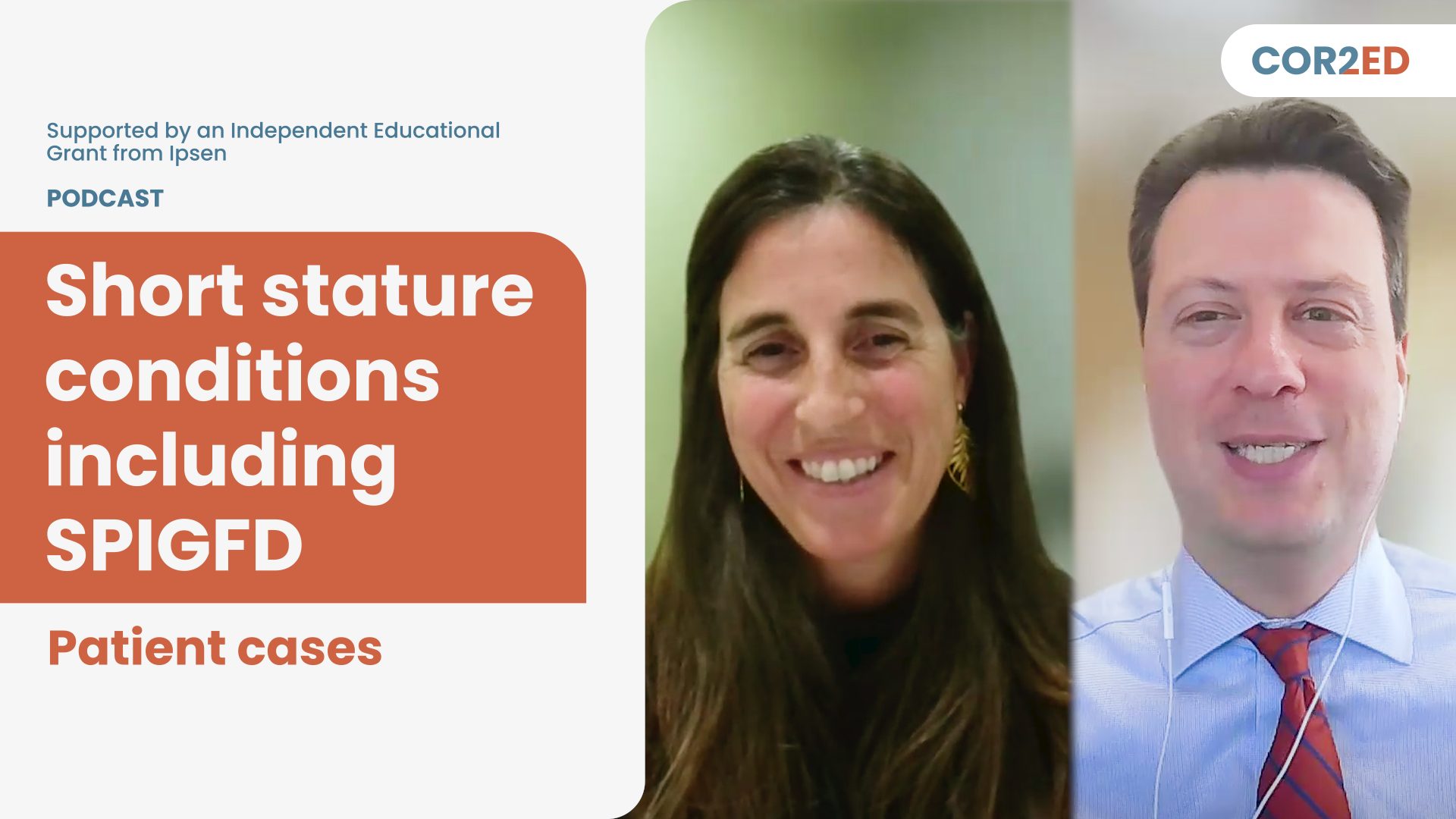Endocrinologist Prof. Maria Luisa Brandi and paediatric endocrinologist Prof. Outi Mäkitie summarise the key highlights from an ECE 2024 Hub session where they discussed the challenges of differential diagnosis of chronic hypophosphatemia and the associated burden of the disease through the presentation of two patient cases.
The medical experts provide key insights on the following topics:
- Hypophosphatemia and its different origins
- The range of factors and conditions to consider
- FGF-23 mediated and non-FGF mediated conditions, including XLH and TIO
Watch the video and download the accompanying slides.
Clinical takeaways
- Phosphate homeostasis is tightly regulated. FGF23 plays a key role in the mechanisms involved in disorders linked to phosphate wasting
- Hypophosphatemia can have genetic or physiological causes. Genetic causes continue throughout the life of the patient, and transition of care from childhood to adulthood is crucial
- Skeletal deformities in childhood and sudden onset of bone abnormalities and fractures without a history of trauma in a previously healthy adult should prompt suspicion of rare bone disorders, such as XLH and TIO
- Several guidelines on the management of chronic hypophosphatemia exist (XLH and TIO). Updates are expected to be published soon



 11 MIN
11 MIN
 Jun 2025
Jun 2025 

 Downloadable
Downloadable 




